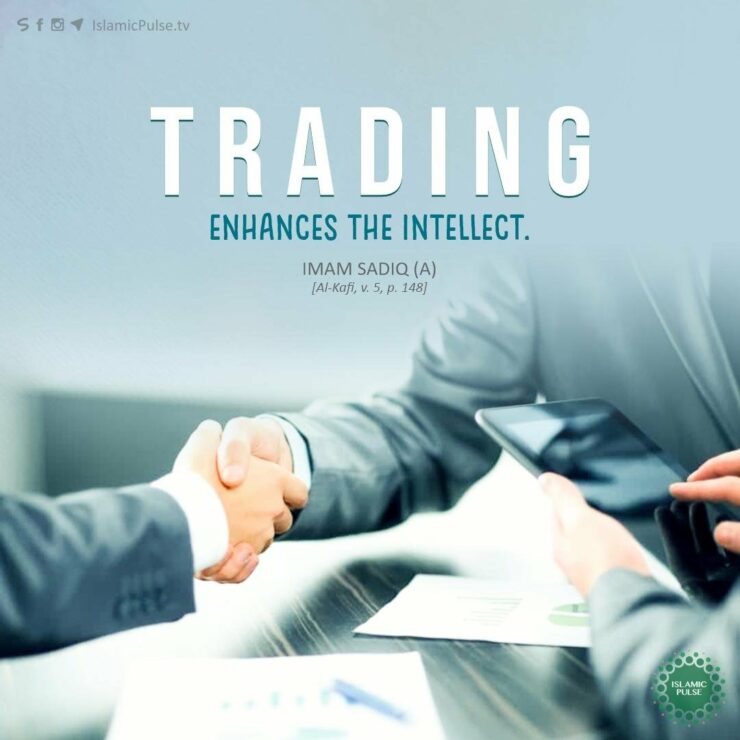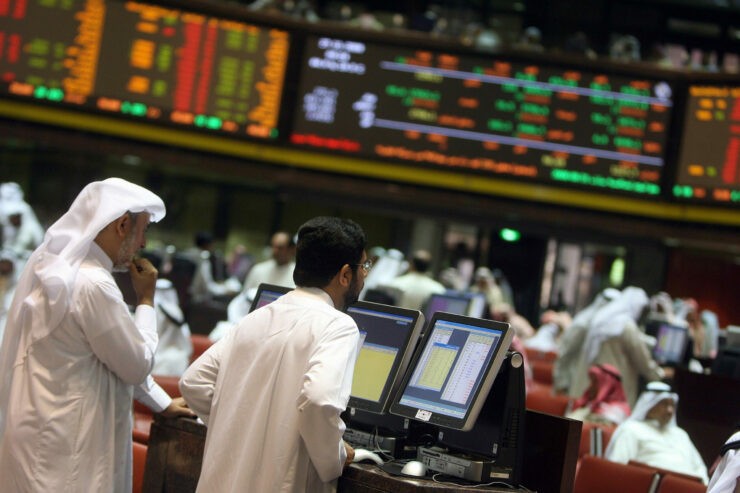The content does not apply to US users.
Our Forex Signals
1 - month
Subscription
 Up to 15 signals daily
Up to 15 signals daily 76% success rate
76% success rate Entry, take profit & stop loss
Entry, take profit & stop loss Amount to risk per trade
Amount to risk per trade Risk reward ratio
Risk reward ratiomonth
3 - month
Subscription
 Up to 15 signals daily
Up to 15 signals daily 76% success rate
76% success rate Entry, take profit & stop loss
Entry, take profit & stop loss Amount to risk per trade
Amount to risk per trade Risk reward ratio
Risk reward ratiomonth
 Most popular
Most popular
6 - month
Subscription
 Up to 15 signals daily
Up to 15 signals daily 76% success rate
76% success rate Entry, take profit & stop loss
Entry, take profit & stop loss Amount to risk per trade
Amount to risk per trade Risk reward ratio
Risk reward ratiomonth
Lifetime
Subscription
 Up to 15 signals daily
Up to 15 signals daily 76% success rate
76% success rate Entry, take profit & stop loss
Entry, take profit & stop loss Amount to risk per trade
Amount to risk per trade Risk reward ratio
Risk reward ratioSeparate Swing Trading Group
 Up to 3 signals weekly
Up to 3 signals weekly 76% success rate
76% success rate Entry, take profit & stop loss
Entry, take profit & stop loss Amount to risk per trade
Amount to risk per trade Risk reward ratio
Risk reward ratiomonth
1 - month
Subscription
 Up to 15 signals daily
Up to 15 signals daily 76% success rate
76% success rate Entry, take profit & stop loss
Entry, take profit & stop loss Amount to risk per trade
Amount to risk per trade Risk reward ratio
Risk reward ratiotime
There are currently around 1.8 billion followers of the Islamic faith. That’s nearly a quarter of the world’s population. There has been much discussion over the decades over how permissible various forms of trading and investing really are, but the good news is that it is entirely possible to trade halal with an Islamic brokerage account.
3
Payment methods
Trading platforms
Regulated by
Support
Min.Deposit
Leverage max
Currency Pairs
Classification
Mobile App
Min.Deposit
$100
Spread min.
Variables pips
Leverage max
100
Currency Pairs
40
Trading platforms
Funding Methods





Regulated by
FCA
What you can trade
Forex
Indices
Actions
Cryptocurrencies
Raw Materials
Average spread
EUR/GBP
-
EUR/USD
-
EUR/JPY
0.3
EUR/CHF
0.2
GBP/USD
0.0
GBP/JPY
0.1
GBP/CHF
0.3
USD/JPY
-
USD/CHF
0.2
CHF/JPY
0.3
Additional Fee
Continuous rate
Variables
Conversión
Variables pips
Regulation
Yes
FCA
No
CYSEC
No
ASIC
No
CFTC
No
NFA
No
BAFIN
No
CMA
No
SCB
No
DFSA
No
CBFSAI
No
BVIFSC
No
FSCA
No
FSA
No
FFAJ
No
ADGM
No
FRSA
71% of retail investor accounts lose money when trading CFDs with this provider.
Min.Deposit
$100
Spread min.
- pips
Leverage max
400
Currency Pairs
50
Trading platforms
Funding Methods




Regulated by
CYSECASICCBFSAIBVIFSCFSCAFSAFFAJADGMFRSA
What you can trade
Forex
Indices
Actions
Cryptocurrencies
Raw Materials
Etfs
Average spread
EUR/GBP
1
EUR/USD
0.9
EUR/JPY
1
EUR/CHF
1
GBP/USD
1
GBP/JPY
1
GBP/CHF
1
USD/JPY
-
USD/CHF
1
CHF/JPY
1
Additional Fee
Continuous rate
-
Conversión
- pips
Regulation
No
FCA
Yes
CYSEC
Yes
ASIC
No
CFTC
No
NFA
No
BAFIN
No
CMA
No
SCB
No
DFSA
Yes
CBFSAI
Yes
BVIFSC
Yes
FSCA
Yes
FSA
Yes
FFAJ
Yes
ADGM
Yes
FRSA
71% of retail investor accounts lose money when trading CFDs with this provider.
Min.Deposit
$50
Spread min.
- pips
Leverage max
500
Currency Pairs
40
Trading platforms
Funding Methods




What you can trade
Forex
Indices
Actions
Raw Materials
Average spread
EUR/GBP
-
EUR/USD
-
EUR/JPY
-
EUR/CHF
-
GBP/USD
-
GBP/JPY
-
GBP/CHF
-
USD/JPY
-
USD/CHF
-
CHF/JPY
-
Additional Fee
Continuous rate
-
Conversión
- pips
Regulation
No
FCA
No
CYSEC
No
ASIC
No
CFTC
No
NFA
No
BAFIN
No
CMA
No
SCB
No
DFSA
No
CBFSAI
No
BVIFSC
No
FSCA
No
FSA
No
FFAJ
No
ADGM
No
FRSA
71% of retail investor accounts lose money when trading CFDs with this provider.
Traditionally in Islam, trading is believed to be haram, although it’s not as black and white as that. Furthermore, Islamic trading accounts have been created to enable people of the Islamic faith to be able to trade whilst remaining true to their faith.
When trading forex, for instance, as long as you trade by calculating your exposure with the correct risk and reward objective – then you won’t be violating Islamic law
On this page, we’re going to talk about everything from what an Islamic trading account is and how this relates to the foundations of Islamic finance. We’ll also discuss what assets are permissible, and how to find a suitable Sharia-compliant broker for your trading needs.
Eightcap - Regulated Platform With Tight Spreads

- Minimum deposit of just 250 USD to get lifetime access to all the VIP channels
- Use our Secure and Encrypted Infrastructure
- Spreads from 0.0 pips on Raw Accounts
- Trade on the Award-Winning MT4 & MT5 Platforms
- Multi-jurisdictional Regulation
- No Commission Trading on Standard Accounts

What is an Islamic Trading Account?
In a nutshell, Islamic trading accounts were created specifically for people who want to actively trade, whilst following all of the principles of Islamic finance laws. This type of account is commonly referred to as a ‘swap-free account’ – meaning there is no interest (which is prohibited for people of the Islamic faith).
If you are faithful to the Quran, you will need to find an Islamic trading account in order to stick to the rules of Sharia law without worrying about paying or earning interest.

Although there aren’t as many Islamic brokers as traditional brokers, there is more appearing year on year. It’s worth noting that whilst not all broker companies offer specific ‘Islamic accounts’, many will offer a standard account – but customised to your needs and in keeping with Sharia law.
Foundations of Trading Halal
As we touched on, Islamic accounts were created to accommodate the basic principles in Islamic finance law which can otherwise make the trading process complicated.
The relationship between the borrower and the lender is really important when it comes to the foundations of Sharia law. For example, interest is thought to be unethical due to the person ‘borrowing’ suffering the majority of the risk whilst the ‘lender’ gets the reward. In the Islamic faith, this interest is called ‘Riba’, but more on that in a moment.
We’ve put together a guide on the fundamentals of trading halal, to shed a bit more light on the most important rules to abide by in order to remain true to your faith.
Hand in Hand Trading
As we said, the subject of trading being widely considered haram is not a cut and dry one. According to Sharia law, trading is halal if it is carried out ‘hand in hand’. Hundreds of years ago, this referred to face to face trading of things like gold, wheat, dates and salt.

Of course, fast forward to the 21st century and most trading is done online. A lot has changed, with almost 60% of the world now having access to the internet, and nearly 10 million traders use online brokers to regularly invest in markets around the world.
The fundamentals of hand in hand trading still stand – the trade contract must be carried out to completion within the same ‘session’. This means that all orders need to be executed immediately
Riba: Interest
In Engish, the word ‘Riba’ translates to ‘interest’. In Arabic, it signifies increase and excess. Riba is without a doubt haram, largely because it’s believed to promote negative growth and a corrupt society.
A reference to this belief is thought to have been revealed in the first revelation of the Holy Quran between 609 CE and 632 CE;
“That which you give as interest to increase the people’s’ wealth increases not with God; but that which you give in charity, seeking the goodwill of God, multiplies manifold.”

Here’s an example of this type of lending:
- Imagine someone sells an asset to you
- You do not purchase the asset with real money
- The ‘lender’ gives the asset to you on credit at a fixed price
- The lender includes a profit component
- Immediately the lender buys the asset back, in real money (at the fixed price)
- This means that the lender is the owner of the asset – and you have the cash injection you needed
- Finally, you need to pay for the value of the aforementioned asset in instalments
- In addition to this, you need to pay the profit component
When trading halal via Islamic brokerage accounts, the provider will ensure you do not pay or receive any interest on your account inline with the aforementioned Riba rule. For those unaware, the same goes for bank accounts, mortgages and savings accounts.
Maisir: Gambling
Gambling and games of chance are considered to be abominations of Satan’s handiwork according to Sharia law. This particular rule (amongst others) is managed by the following foundations:
- Bai salam (full payment in advance)
- Musawamah (price paid by the seller is unknown to the trader)
- Bai al inah (sale and repurchase)
- Murabaha (cost-plus financing)
- Bai bithaman ajil (sale with deferred payment)
- Mudarabah (profit sharing)
- Bai muajjjal (credit sale)
A good gauge on whether or not something is going to be considered gambling is anything with an air of ‘get rich quick’ about it. Some people consider the stock market to be a little on the maisir side and therefore a sin.
The reason it could be considered a sin is namely that if for example, you are day trading – you are in it to make some quick money. Islamic trading accounts take all of these things into account to help you stay on the straight and narrow.
Gharar: Uncertainty/Undetermined Risk
Any financial transaction where the consequence is undetermined is ‘gharar’. This can include trading transactions which aren’t fixed or predetermined – such as swaps, futures, forwards, and options. We will talk more about available/unavailable assets shortly.
Any excessive risk in your trading endeavours would jeopardise sticking to the rules of Islamic finance. It is for that reason we strongly suggest that you don’t try to do it on your own, and instead, open an Islamic trading account.
Essentially any trading platform offering Islamic/swap-free trading accounts must abide by all of the foundations of Islamic laws, meanwhile still providing you with access to global markets. This means that you can trade without worrying about breaking the rules of Sharia law and being disrespectful to your faith.
Is Trading Halal or Haram?
The answer to whether or not trading is halal or haram is not a simple one. This is partly why Islamic trading accounts exist. Crucially, some traditional Western trading practices can be easily adapted to suit followers of the Islamic faith.
Futures and bonds are most definitely considered haram. In the case of bonds (Sukuk), they are forbidden because they are constructed based upon interest rates. When bonds are traded via CFDs – there is no interest. However, the value of the interest rate is at the source of the spread.
When it comes to futures contracts, they are prohibited because of the delayed nature of the trade.
If you think about it this way –
- When you’ve signed your contract, the sale or purchase isn’t immediate.
- This goes against the ‘hand in hand’ rule of Sharia law (see above).
Binary options consist of attempting to predetermine shifts in price within a fixed length of time. This way of trading is certainly a popular way for traders to make money but binary options are strongly considered to be haram – largely due to interest earned or paid to the broker.

Next, we’re going to clear the mist on what you can trade with Islamic trading accounts.
What can I Trade With Islamic Trading Accounts?
Despite the aforementioned rules which need to be followed in order to remain true to the Islamic faith, by trading using an Islamic trading account with a regulated broker – you’d be surprised how much you can actually trade.

For your convenience, we’ve listed the assets which you will be able to trade as soon as you get yourself an Islamic trading account.
Forex
We explained further up that Riba is one of the key principles in Islamic law. Generally speaking, it’s common practice when trading in the forex market for the investor to keep some positions open after the trading session has ended.
This open position creates a ‘swap commission’ which is essentially an overnight financing fee, or interest – which is of course prohibited. There has also been much debate amongst scholars about whether or not forex counts as gambling and is therefore haram.
Anyone who has ever traded in the volatile forex market knows that trading currencies is not simply down to taking a gamble. On the contrary – there is strategy involved, studying technical analysis and price data. In this respect, forex is most certainly not a game of chance.
You can trade majors, minors and exotics through your Islamic account provider. Remember each broker will be different, so if you are interested in a specific pair always check the availability on the platform in question.
Here are a few examples of forex pair types that most Islamic trading accounts support:
- Minors: EUR/GBP, GBP/AUD, AUD/JPY, GBP/CAD, EUR/NZD, CHF/JPY
- Majors: EUR/USD, EUR/USD, USD/JPY, AUD/USD, NZD/USD, USD/CHF
- Exotics: USD/HKD, USD/SEK, USD/SGD, EUR/TRY, USD/MXN, EUR/HUF
When trading forex through Islamic trading accounts there are no swap payments whatsoever – therefore it is considered to be halal. One thing to look out for though is other fees such as commissions. After all, the broker needs to make money somehow.
We will go into commissions to look out for later on.
Cryptocurrencies
Much like when trading forex, there are no specific crypto coins exclusively for Islamic traders. However, their price shifts are based on supply and demand rather than interest, so cryptocurrencies are permitted under Islamic finance rules. That said, rumour has it that progress is being made on the first-ever Islamic crypto exchange.

Cryptocurrencies aren’t reliant on interest rates, so even without an Islamic trading account, you could trade crypto coins. On the other hand, if you want to trade more than one asset whilst remaining halal then having a proper Islamic account is a must.
Stocks and Shares
Under the rules of Islamic law, you may purchase, hold and sell halal stocks through your broker. After all, trading goods like wheat and textiles has been done for centuries. In fact, well-known prophet Muhammad (pbuh) was by all accounts a stock trading businessman.

Let’s give you a few examples of companies from an Islamic law point of view.
- Shares considered strictly haram: Interest-based banks, hotels, tourism, alcohol, commercial insurance firms, nightclubs.
- Shares considered haram, in part due to practices: Companies who use interest bank accounts, companies financed by interest loans.
- Shares considered halal: Supplies, metals, medical equipment, manufacturing, shipping, clothing, real estate, furniture, tools, agricultural products.
As you can see, there is a definite grey area when it comes to stocks and shares, so sometimes all might not be as it seems. When you trade stocks via an Islamic trading account you will not be exposed to any haram stocks at all. -Instead, you can trade things like agricultural products and metals to build up your portfolio.
CFDs
CFDs is a tricky one – because you don’t own the underlying asset many people consider it to be against Sharia law. This is yet again where Islamic trading accounts come in. The brokerage effectively removes all interest and swaps on commodities, indices, shares, ETFs and bonds.
Crucially, you need to investigate this with each broker platform. This is because providers will not only offer different financial instruments but also have unique terms, conditions and fees.
Options
When it comes to traditional ‘call’ options you will pay a ‘premium’ – which gives you the option to buy shares, currencies and bonds etc. The hope being that the market price will soar above the exercise price before expiry. If that happens, the profit from the trade is the contrast between both prices – with the premium deducted.
In the case of Islamic trading accounts, the call option is known as an ‘urbun’ (English translation – deposit). Using an urbun, the investor makes an advanced payment on the asset or shares. The goal of that price will surpass the preset/strike price.
If the price doesn’t rise above the strike price, then the only loss incurred is their own advanced payment (also referred to as a pre-set price). You do, however, have the right to forfeit this.
In terms of ‘put’ options, in Islamic trading, this is termed a ‘reverse urbun’. In other words, the seller can sell at a predetermined price later down the line to make a profit if the asset value drops.
Islamic Bonds
In the case of Islamic trading accounts – bonds are called ‘Sukuk’. This is essentially a bond-like instrument without the interest compartment or debt burden. The fact is Islamic traders want to include bonds in their portfolios whilst still remaining faithful to the Quran.
A sukuk is characterised by you owning an asset-based security, as traditional bonds don’t give investors the opportunity to own an asset. Instead, it’s seen as a debt obligation which isn’t permitted under Islamic law.
When trading this type of bond via an Islamic trading account – you will be given partial ownership in that asset. The asset will need to be halal, which your broker will take care of. Remember, when it comes to the underlying asset there might be costs involved which will be reflected in your profits.
Types of Islamic Trading Accounts
By now you should feel safe in the knowledge that you can both trade and remain true to your beliefs by simply trading via an Islamic brokerage account.
With that in mind, we’re going to explain a few types of trading strategies to inspire you.
Islamic Swing Trading
Swing trading is essentially short-term hypothesising of various markets in ETFs, futures, forex, cryptocurrencies, options, and stocks. These positions will be held open for longer than one trading day, sometimes weeks.
Consequently, the only way you can swing trade whilst remaining in line with Sharia law is through Islamic trading accounts. Using a swap-free Islamic account, for example, will ensure you avoid all interest rates and your position will never be left open overnight.
Islamic Day Trading
As you are probably aware, day trading involves closing your position before the trading day is over and the market closes. As a result, there are no swap fees, so this type of trading is permitted within Islamic finance rules.
One of the benefits of day trading via Islamic trading accounts is that you don’t need to concern yourself with closing the position. However, is it absolutely fundamental that you close the position before the end of the trading session to ensure you avoid overnight financing fees.
This will, however, only be an issue if you are using a standard brokerage account. On the contrary, by using an Islamic trading account – swap fees are non-existent, so you don’t need to worry about keeping the odd day trading position open past market hours.
Islamic Scalping
In essence, scalping is the act of opening various small positions in the market, and each trade closes within minutes, or in some cases seconds. This type of trading suits followers of the Islamic faith perfectly as each position closes at a lightning-fast speed. As such, there is no swap fee involved regardless of your account type.
Theoretically, you could trade this way through a traditional trading account. But, by specifically trading via Islamic trading accounts you are not only more flexible to keep positions open for longer, but you’re protected from Riba.
Islamic Trading Accounts: Commissions
As we’ve explained throughout this guide, the big difference between trading with a standard account and an Islamic account is the swap interest (or lack of). The swap interest is of course created by leaving positions open overnight.

By trading with Islamic trading accounts, all interest is removed. With that said, the brokerage still needs to make some money for the service provided. This is where other fees come into the equation.
Here are the most commonly seen extra fees attached to Islamic trading accounts:
- Margin fees.
- Commission fees.
- Admin fees.
All of the above fees are halal and therefore perfectly permissible for followers of the Islamic faith.
Pros and Cons of Islamic Trading Accounts
Like with most things in life, where there are advantages there are disadvantages. We’ve listed the pros and cons of Islamic trading accounts below.
Pros
- Trade easily without disrespecting Sharia law.
- You are able to trade halal stocks.
- Diversify your trading portfolio within Islamic law.
- No swap fees/Riba.
- Elevated transparency.
Cons
- Some Islamic brokers charge hefty fees to make up for lack of swaps.
- Somewhat limited capacity for hedging and diversification.
- Still a bit of a niche trading account.
How to Find the Best Islamic Trading Accounts
Before you can begin to trade using Islamic trading accounts, you need to first find yourself a good broker to execute your Sharia-compliant trades for you.

Broker Regulation
When researching brokers offering Islamic trading accounts, you should always make sure your platform of choice is licenced and regulated. For instance, if you are a UK resident and your broker is licenced by the FCA, then your funds will be protected up to £85,000 (should the company become bankrupt).
Not only will your funds be segregated and protected under this kind of regulatory body – but the broker firm is monitored and subjected to regular audits to make sure everything is above board.
A good way to make sure your broker is licenced is to check the website for a licence number. If you are unsure of the validity of this regulatory number, you can check on the official FCA website (or other regulatory body).
Spread
Spreads make a big difference to your gains and losses when it comes to trading – whether using an Islamic trading account or not. In case you aren’t aware, the spread is the difference between the buy price and the sell price.
Here is an example of a spread (which is measured in ‘pips’):
- Imagine GBP/USD has a buy price of 1.2933.
- The sell price for GBP/USD is 1.2930.
- Using this example, GBP/USD has a spread of 3 pips.
- To break even you would need to increase this trade by 3 pips.
- Anything after 3 pips would therefore be profit.
The lower the spread the better when you’re on the hunt for the best Islamic trading accounts. But, the chances are you will find higher spreads attached to this kind of account. The reason spreads and fees are usually higher is because the broker is losing money on interest fees.
Asset Diversity
Most traders like to focus on just a few assets, especially to begin with. It’s easier to master a few markets than all of them. After all, learning how to read and analyze pricing trends can take years to fully understand.
Islamic trading accounts can be used to trade a plethora of different asset classes whilst still respecting Islamic finance laws. When you’re looking for your ideal Sharia-compliant broker, we advise finding one that offers a wide variety of instruments to help you diversify your halal portfolio.
Trading Tools and Technical Indicators
As we’ve said, it can take years to master the art of trading, understanding historical price data and such like. Ideally, your broker should offer a variety of technical indicators to help you understand the market sentiment.
This includes:
- Support And Resistance.
- Relative Strength Index (RSI).
- Bollinger Bands.
- Oscillator.
- Parabolic SAR.
- Moving Average Convergence Divergence (MACD).
- Commodity Channel Index (CCI).
- Stochastics.
Unless you are using a fully automated EA system (robot) and trading in a passive manner, then all of these trading tools are invaluable. Whilst not every broker will offer all of these tools, at least some will be beneficial to you.
Here are some of the most useful tools used by traders:
- Trading diary/journal.
- Currency correlation.
- Pip calculator.
- MT4/5 trading platform.
- Fundamental analysis.
- Broker spread comparison.
- Economic news calendars.
- Financial newswires such as Reuters.
- Time zone converter.
- Volatility calculator.
Deposit and Withdrawal Procedure
When it comes to key metrics to look out for, payment methods are up there with spreads, fees and customer support. Not all Islamic trading accounts are the same, so you will need to make sure your preferred payment method is accepted on the broker platform before signing up.
The most commonly seen payment methods offered by Islamic trading accounts are as follows:
Bear in mind that if you deposit into your account with a bank wire transfer – it usually takes longer to arrive. If you deposit using an e-wallet, for example, you can begin trading almost immediately.
Customer Support
The customer support options on offer from a brokerage firm are important. You can take a look at what options are available by visiting the platform before signing up. You should be looking out for 24/7 live chat, and a telephone support line so that if you are in a fix and need answers – you can reach someone straight away.

How to Open an Islamic Trading Account
By now you should be informed enough to open your Islamic trading account and start trading. To set you off on the right foot we’ve put together a step by step guide on how to get started.
Step 1: Sign Up for an Islamic Account
First thing is first – head over to the Sharia law friendly broker platform and either select the Islamic trading account option or look for a swap-free account. If you can’t see either of those simply contact customer services and chances are they will adapt a standard account to suit your needs.
All you need to do is enter your personal information, email address and a unique password – followed by a few questions about your financial standing. This is all due to the KYC (know your customer) rules put in place by regulatory bodies, namely to prevent money laundering and financial fraud.
Step 2: Input Your Trading History
Some, but not all, platforms will require some extra information relating to your previous trading experience. The reason for this is to help the broker comprehend your experience level and thus recommended appropriate Islamic account-friendly products.
Step 3: Deposit Into Your Account
Now you have signed up, you can go ahead and fund your Islamic trading account. Simply select from the payment options available at your chosen brokerage and choose an amount to deposit.
Bear in mind, some providers do have a minimum deposit amount. In the case of Capital.com, this is only $1,000 for an Islamic trading account.
Step 4: Start Trading
On platforms such as Capital.com, setting up an account can take less than 10 minutes. We recommend Capital.com for beginners as not only can you copy an experienced trader, but you have access to a demo account with $100,000 worth of paper funds to play with.
Best Islamic Trading Accounts of 2023
You’re probably eager to get started and open an Islamic trading account. If you are still undecided about which broker is going to meet your needs – then have a look at our top 5 Islamic trading accounts of 2023.
1. AvaTrade - Islamic Trading Accounts for MT4/MT5
This Islamic-friendly broker is fully licenced and reputable. AvaTrade has no qualms at all about adapting its accounts to serve the needs of your faith and trading style. The platform’s Islamic trading accounts come with no daily swaps or overnight fees so are completely compliant with Sharia law.
The platform offers halal Silver and Gold AvaTrade Islamic accounts as well as allowing you to trade oil futures (swap-free). The Sharia-compliant broker is also available for MT4 and MT5 which is superb for technical analysis and price charts etc.
Interest fees are waivered on all assets and AvaTrade does charge admin fees when trading forex via your Islamic trading account. Administration fees will be charged for open forex positions.
Please note that you cannot trade MXN, RUB, TRY, or ZAR forex pairs via your Islamic account on this platform. The deposit required to open an Islamic trading account is $100. Simply sign up, submit proof of identification and fill out a request form to start trading via an AvaTrade Islamic account.

2. Capital.com - Commission-Free and Competitive Spreads on Copper
Capital.com allows you to trade copper through commodity CFDs. Or, you can trade stock CFDs of copper mining companies such as the Southern Copper Corp. Approved by both the FCA and CySEC, the brokerage currently has over 700,000 clients.
The time-honoured reputation and expertise of Capital.com are visible from its vast suite of resources for new traders. This includes CFD demo accounts, trading courses, and educational videos.
Capital.com is one of the few brokers that will charge you zero commission for copper trades. They also cover the cost of your deposits and withdrawals.
You will only have to pay the spread, which is also highly competitive at this platform. The minimum deposit required is 20 dollars, 20 pounds, or 20 euros, or whichever currency you prefer to pay in.

- Trade commodities commission-free
- Competative spreads
- Regulated by both FCA and CySEC
To Conclude
As you can see, it is entirely possible for people of the Islamic faith to trade within the laws of Islamic finance – whilst remaining fully respectful to the rules of the Quran. All you need to do is find yourself a regulated brokerage platform and sign up for an Islamic trading account.
It’s also important to remember that not all broker platforms advertise Islamic trading accounts. Some are called ‘swap-free’ accounts, or ‘halal’ accounts. If you can’t see any of the aforementioned but are interested in that broker, then send them an email and they might customise a standard account to meet your swap-free needs.
For your own protection and peace of mind, we strongly recommend only signing up with a broker holding a licence from a body such as the FCA or ASIC – such as the ones we’ve listed on this page.
Capital.com is a multi-asset platform which offers both investing in stocks and cryptoassets, as well as trading CFDs.
Please note that CFDs are complex instruments and come with a high risk of losing money rapidly due to leverage. 75% of retail investor accounts lose money when trading CFDs with this provider. You should consider whether you understand how CFDs work, and whether you can afford to take the high risk of losing your money.
Past performance is not an indication of future results
Cryptoassets are volatile instruments which can fluctuate widely in a very short timeframe and therefore are not appropriate for all investors. Other than via CFDs, trading cryptoassets is unregulated and therefore is not supervised by any EU regulatory
framework.
Capital.com USA LLC does not offer CFDs and makes no representation and assumes no liability as to the accuracy or completeness of the content of this publication, which has been prepared by our partner utilizing publicly available non-entity specific information about Capital.com.
AvaTrade - Established Broker With Commission-Free Trades

- Minimum deposit of just 250 USD to get lifetime access to all the VIP channels
- Awarded Best Global MT4 Forex Broker
- Pay 0% on all CFD instruments
- Thousands of CFD assets to trade
- Leverage facilities available
- Instantly deposit funds with a debit/credit card


